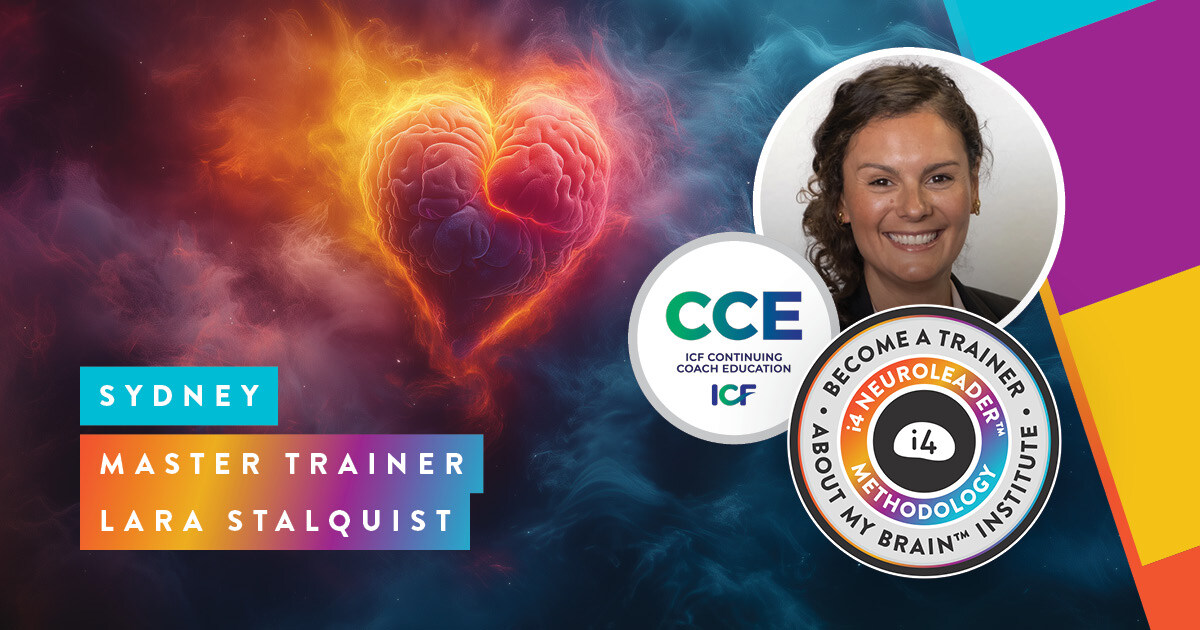Unlocking Leadership Through Communication with Dineshrie Pillay
Leadership is more than just a title; it’s about influence, self-awareness and the ability to inspire change. Dineshrie’s journey into leadership development began at a young age and was shaped by both successes and personal challenges.
With over 15 years of experience coaching professionals, she has dedicated her career to helping people find their voice and step into their leadership potential. In this conversation, she shares the pivotal moments that shaped her path, the lessons she’s learned along the way and how the i4 Neuroleader Methodology is helping individuals and organisations create meaningful change.
I invite you to read this interview of our Johannesburg Master Trainer and get to know Dineshrie Pillay; her story, insights and the passion that drives her work in leadership development.
What motivated you to work in leadership development?
From a young age, I was thrust into leadership positions, whether in school debate teams, university committees or as a young audit manager. Later, I took on leadership roles within corporate, chaired committees in membership organisations and nonprofits and eventually started my own business.
The ability to speak with conviction is what separates leaders from others. Someone who can influence, persuade and inspire through their voice has a unique advantage. This understanding fuelled my passion for public speaking and leadership development. When I empower one person to find their voice, a community rises.
Can you share a life story that shaped your belief in developing personal leadership?
I failed my Chartered Accountant Board Exams twice despite having a strong academic record. My peers, whom I had tutored, were passing, yet I struggled. My manager suggested a book: Conversations with God by Neale Donald Walsch. Reading it overnight, I had a profound realisation, our outcomes are shaped by our thoughts, words, and actions.
This shifted my mindset. I approached my next attempt differently, focusing on mental and emotional resilience. I passed in a year with a record-high failure rate. That experience instilled in me the belief that anything is possible with the right mindset. What began as a goal to qualify as a Chartered Accountant turned into a lifelong journey of self-discovery and personal mastery.
How does leadership development benefit organisations and society?
Organisations and societies are interconnected. When businesses thrive, employees grow, and economies benefit. However, many view their roles as mere "jobs," which can feel uninspiring and lack purpose. Leadership is about shifting that perspective, helping individuals recognise their role within a larger system.
For society to remain relevant in a changing global landscape, organisations must adapt. This requires individuals to ask, “How do I stay relevant?” Leadership development answers that question, reigniting purpose and ultimately driving organisational and societal success.
What inspired you to become a Master Trainer for the About My Brain Institute?
Having spent many years helping leaders overcome their fear of public speaking, build confidence and communicate purposefully, I sought a tool to measure brain performance and unlock untapped potential. This search led me to the i4 Neuroleader™ Course.
The methodology stood out because it is science-based and practical. It emphasises neuroplasticity, the brain’s ability to change through behaviour. Before becoming a Master Trainer, I experimented with the program’s techniques on myself. I noticed an immediate shift: increased creativity, more energy and the ability to embrace rest.
Now, as a Master Trainer, I integrate this methodology into my public speaking workshops, offering a holistic approach to leadership development, and of course, our upcoming Brain-Friendly Leadership Certification taking place in Johannesburg.
What makes the i4 Neuroleader™ Methodology unique for future leaders?
Three key factors stand out:
- Competency-Based Framework: It provides concrete, actionable behaviours for improvement, with a detailed report offering practical steps.
- No Leadership Archetypes: Unlike traditional models, it doesn’t box individuals into categories like "introvert" or "extrovert." Instead, it highlights areas for a balanced brain profile.
- Omni-Directional Feedback: Rather than relying solely on managerial or peer reviews, this methodology gathers insights from family, friends, colleagues and social networks, offering a comprehensive leadership assessment.
Can you describe your clients and how you’ve helped them?
I work with leaders who are navigating transitions; new appointments, struggling with recognition, seeking stronger sales skills or committed to personal growth. Over the years, I’ve trained thousands across industries and continents, from corporate executives to small business owners. My system helps individuals regain confidence, refine communication and use speaking as a tool for business growth.
Despite challenges as a small business owner in South Africa, my work has thrived through referrals. The reason? My approach is simple, practical and delivers immediate results. Now, by integrating the i4 Neuroleader™ Methodology, I offer a complete solution for self-development.
What are your expectations when applying the i4 Neuroleader™ Model?
When I started my public speaking training business, my goal was straightforward: empower individuals with their voice, one session at a time. Over the years, my audience has ranged from intimate groups to thousands, spanning local and international stages.
With the i4 Neuroleader™ Model, my mission is just as clear: create brain-friendly cultures, one training session at a time. By helping individuals unlock their full potential, we build organisations and societies that thrive.
Join Dineshrie at our upcoming Brain-Friendly Leadership Certification in Johannesburg👇
🌎 This program is also taking place in:
-
New York with Emily Juricek
-
Sydney with Lara Stalquist
-
Melbourne / Hobart with Gail Eaton-Briggs
- i4 Neuroleader (353)
- Leadership & Culture (325)
- Brain Health & Wellbeing (202)
- Innovation (97)
- Performance (85)
- Our News (80)
- Collaboration (68)
- Agility (53)
- Practitioner Stories (44)
- In The Press (36)
- Make Me A Leader (33)
- Balance (31)
- Integration (30)
- Imagination (29)
- Awareness (23)
- Brain-Friendly Channel (22)
- Communication (22)
- Curiosity (21)
- Inspiration (19)
- Intuition (19)
- Attitude (17)
- Courage (16)
- Adaptability (14)
- Case Studies (14)
- Drive (14)
- Generosity (13)
- Brain-Friendly Leadership (11)
- Ethics (9)
- Mental Readiness (9)
- Influence (8)
- Retreat (6)
- Brain-Friendly Leadership (1)
- Oracle Cards (1)
- 1 April 2025 (1)
- 1 March 2025 (9)
- 1 February 2025 (3)
- 1 September 2024 (4)
- 1 July 2024 (2)
- 1 June 2024 (6)
- 1 May 2024 (2)
- 1 April 2024 (3)
- 1 March 2024 (1)
- 1 November 2023 (1)
- 1 August 2023 (1)
- 1 July 2023 (2)
- 1 June 2023 (2)
- 1 May 2023 (4)
- 1 April 2023 (2)
- 1 March 2023 (7)
- 1 February 2023 (4)
- 1 January 2023 (1)
- 1 September 2022 (1)
- 1 May 2022 (3)
- 1 April 2022 (1)
- 1 March 2022 (5)
- 1 February 2022 (4)
- 1 January 2022 (4)
- 1 December 2021 (2)
- 1 November 2021 (4)
- 1 October 2021 (3)
- 1 September 2021 (6)
- 1 August 2021 (1)
- 1 April 2021 (1)
- 1 December 2020 (2)
- 1 November 2020 (1)
- 1 September 2020 (1)
- 1 August 2020 (1)
- 1 July 2020 (3)
- 1 June 2020 (4)
- 1 May 2020 (3)
- 1 April 2020 (4)
- 1 March 2020 (6)
- 1 February 2020 (4)
- 1 January 2020 (2)
- 1 December 2019 (3)
- 1 November 2019 (3)
- 1 October 2019 (5)
- 1 September 2019 (4)
- 1 August 2019 (4)
- 1 July 2019 (4)
- 1 June 2019 (5)
- 1 May 2019 (9)
- 1 April 2019 (9)
- 1 March 2019 (8)
- 1 February 2019 (7)
- 1 January 2019 (8)
- 1 December 2018 (5)
- 1 November 2018 (10)
- 1 October 2018 (16)
- 1 September 2018 (9)
- 1 August 2018 (10)
- 1 July 2018 (9)
- 1 June 2018 (8)
- 1 May 2018 (9)
- 1 April 2018 (9)
- 1 March 2018 (9)
- 1 February 2018 (8)
- 1 January 2018 (8)
- 1 December 2017 (6)
- 1 November 2017 (9)
- 1 October 2017 (9)
- 1 September 2017 (8)
- 1 August 2017 (10)
- 1 July 2017 (8)
- 1 June 2017 (8)
- 1 May 2017 (9)
- 1 April 2017 (8)
- 1 March 2017 (6)
- 1 January 2017 (3)
- 1 December 2016 (4)
- 1 November 2016 (5)
- 1 October 2016 (4)
- 1 September 2016 (2)
- 1 August 2016 (4)
- 1 July 2016 (4)
- 1 June 2016 (2)
- 1 May 2016 (3)
- 1 April 2016 (3)
- 1 March 2016 (7)
- 1 February 2016 (2)
- 1 January 2016 (5)
- 1 December 2015 (2)
- 1 November 2015 (2)
- 1 October 2015 (4)
- 1 September 2015 (2)
- 1 August 2015 (2)
- 1 July 2015 (1)
- 1 June 2015 (3)
- 1 May 2015 (4)
- 1 April 2015 (5)
- 1 March 2015 (3)
- 1 February 2015 (3)
- 1 January 2015 (3)
- 1 December 2014 (3)
- 1 November 2014 (3)
- 1 October 2014 (3)
- 1 September 2014 (5)
- 1 August 2014 (4)
- 1 July 2014 (5)
- 1 June 2014 (3)
- 1 May 2014 (1)
- 1 March 2014 (1)
- 1 December 2013 (2)
- 1 November 2013 (1)
- 1 July 2013 (1)
- 1 June 2013 (1)
- 1 May 2013 (3)
- 1 April 2013 (1)
- 1 March 2013 (2)
- 1 February 2013 (1)
- 1 January 2013 (2)
- 1 November 2012 (1)
- 1 October 2012 (1)
- 1 September 2012 (1)
- 1 August 2012 (2)
- 1 July 2012 (1)
- 1 June 2012 (1)
- 1 May 2012 (2)
- 1 April 2012 (1)
- 1 February 2012 (1)
- 1 January 2012 (1)
- 1 November 2011 (1)
- 1 October 2011 (3)
- 1 September 2011 (2)
- 1 July 2011 (1)
- 1 June 2011 (1)
- 1 May 2011 (1)
- 1 April 2011 (1)
- 1 March 2011 (1)
- 1 February 2011 (2)
- 1 January 2011 (4)
- 1 December 2010 (4)
- 1 November 2010 (3)
- 1 October 2010 (5)
- 1 September 2010 (4)
- 1 August 2010 (4)
- 1 July 2010 (3)
- 1 June 2010 (4)
- 1 May 2010 (7)
- 1 April 2010 (5)
Subscribe by email
You May Also Like
These Related Stories

Brains, Hearts & Bold Moves with Lara Stalquist

Transforming Minds and Organizations with Emily Juricek







No Comments Yet
Let us know what you think